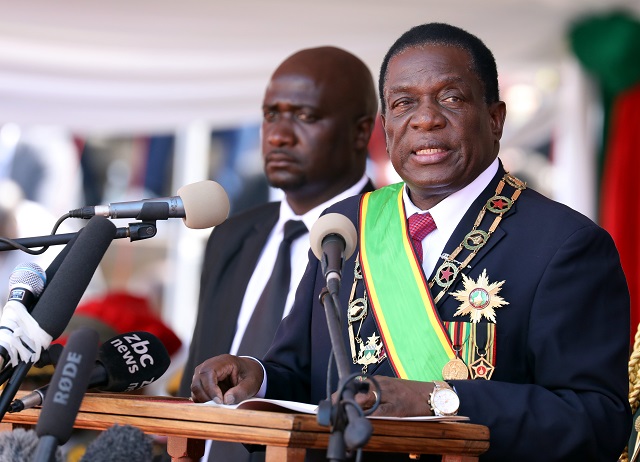EDITORIAL COMMENT: SA government must forge ahead with land reform

It is unacceptable that 24 years after apartheid ended, South African whites — who make up just nine percent of the national population —own 72 percent of the farmland held by individuals.
At independence, the African National Congress (ANC) government committed itself to transferring 30 percent of the land that was in white hands by 2000 through the willing-buyer-willing seller method, but just 10 percent of it has been reclaimed. This failure has been because whites are over-pricing their land or are simply unwilling to part with the resource.
The Economic Freedom Fighters led by former ANC youth leader, Mr Julius Malema has also been vocal about the need for fairer land distribution in their country, the world’s most unequal in terms of economic opportunities. In February last year, he proposed a motion to amend Section 25 of the Constitution of South Africa to allow for expropriation of land without compensation but, without the support of the ANC, it was resoundingly defeated 261-33.
In February this year, the EFF came up with a revised motion with some amendments proposed by the ANC. The motion was approved, 241 votes in favour and 83 against. This set the stage for the South African government to take land without compensation. The Constitutional Review Committee immediately started reviewing Section 25 of the Constitution and, according to the original timeline, should report back to parliament by tomorrow.
Early this month, President Cyril Ramaphosa announced that his government would now forge ahead with plans to change the constitution to allow the expropriation of land without compensation.
This stance has clearly cheered black South Africans who have suffered the indignity of landlessness in their land of ancestry. On the other hand, the moves have predictably angered the landed whites and the markets they dominate. US President, Mr Donald Trump waded into the emotive debate, tweeting on Thursday that he had instructed his Secretary of State to “closely study the South Africa land and farm seizures and expropriations and the large scale killing of farmers.”
We don’t think Mr Trump, who is accustomed to speaking down to basically everyone and getting his way, was really ready for the bold response he got from President Ramaphosa’s government since his intrusive tweet.
“I don’t know what Donald Trump has to do with South African land because he has never been here and he must keep his America we will keep our South Africa. That is what he must do; South Africa is our land,” President Ramaphosa said at the weekend.
“South Africa belongs to all the people who live here in South Africa, it does not belong to Donald Trump; he can keep his America. When I meet him I will tell him. He can keep his America and anyway he is even worse, when I meet him I will tell him. I will say you Donald Trump you are even worse because when your forefathers came to America they found the native, the indigenous Americans. They wiped them out; they killed nearly all of them. — We are living as a nation. We are living as black and whites. We are going to find solutions for our land question. So Donald Trump leave us alone. He must leave us alone. When we were facing apartheid, when we were facing oppression, he was not here. He did not fight side by side with us.”
Unfair is a gross understatement to describe the land ownership structure in South Africa. It is insane, extreme, and disgraceful. Because of that, the time has come for black South Africans to reclaim their land from white settlers.
The point has to be made that the racial imbalance in land ownership down south is the single biggest threat to national security in that country. We, therefore, wonder how anyone in their right senses can even begin to think that they can tolerate the continued existence of Bantustans in South Africa, 24 years after apartheid, the system that bore those objectionable settlements, was defeated? Are South African blacks supposed to be quiet in their landlessness? The answer to this question is a resounding “No.”
We find it deeply unhelpful, nay provocative for people like Mr Trump and many among the landed in South Africa to be hysterical about a genuine government programme to address that issue in terms of their laws and the aspirations of the majority of South Africans who happen to be blacks who were violently dispossessed of their ancestral lands.
But as South Africans begin to repossess their land, they have to learn a few lessons from our country. The biggest lesson, one they appear to have grasped, is that the willing-buyer-willing seller method does not work when it comes to a resource so central to humanity as the land. Expropriation is the only way.
The other lesson is that South Africans have to fight for their land and be prepared to bear the consequences which are sure to come their way as they did when we repossessed our land in 2000. The consequences can come in the form of economic sanctions and economic challenges they pose. They can even killings of those leading the land reclamation exercise. Political instability may occur in South Africa too, as it did here when the West created the MDC in attempts to unseat the revolutionary party, Zanu-PF and reverse the land reforms.
They must be ready to face these and more consequences which, we must state, can be extremely painful.
However, an encouraging fact from the Zimbabwean experience is that after we fell to the base, we could not fall any deeper; the only way from there is up and up. Eighteen years after our land redistribution programme, local farmers this year had the biggest tobacco harvest in history, 250 million kilogrammes. Maize production has risen to a record high as well.












Comments